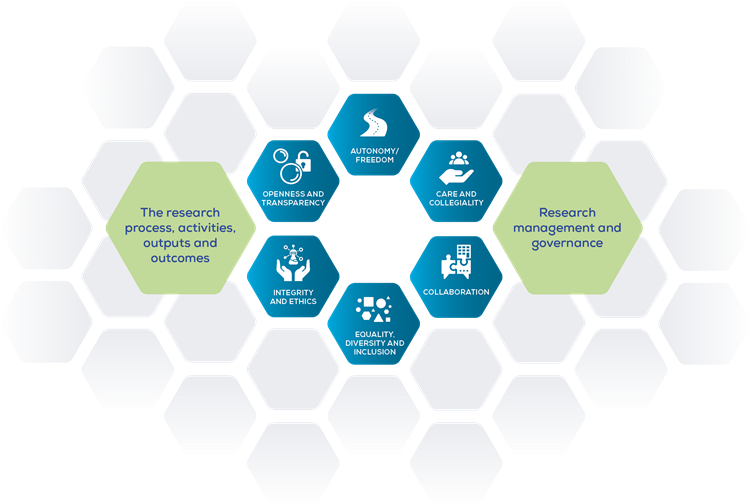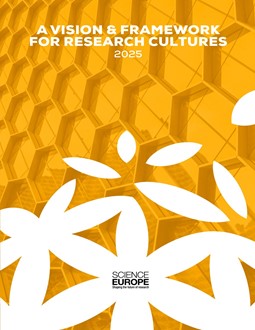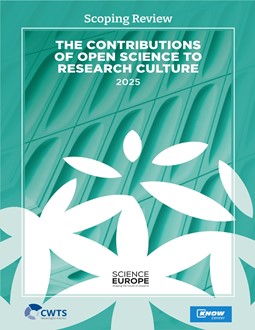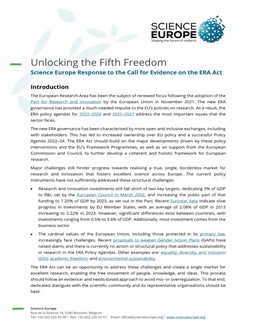Why is research culture important?
In the European Research Area (ERA), and globally, there are a diversity of approaches to research cultures that influence the way that research is governed, funded, performed, and communicated. These impact the career pathways of all research professionals, as well as the orientation of research themes and priorities. Importantly, the culture that pervades any given research system influences the quality of its outputs and outcomes.
The topic of research culture offers an opportunity to reflect on the links between the processes and policies that govern research systems on one hand, and the practices and attitudes of those that are involved in the research endeavour on the other. A holistic view is needed when considering policy reforms to areas such as Research Assessment Systems, Open Science, and Equality, Diversity, and Inclusion, that acknowledges the interconnected nature of these key themes.














